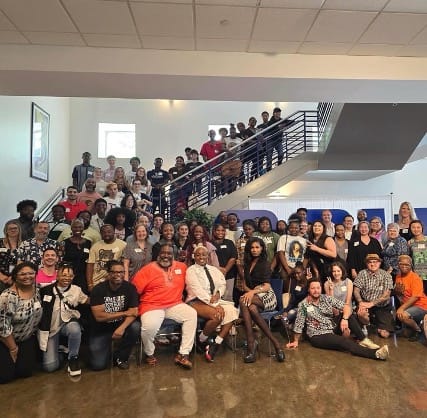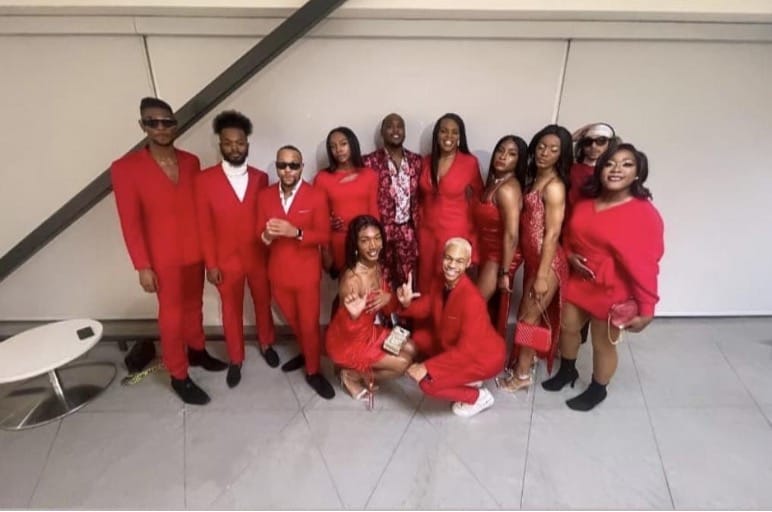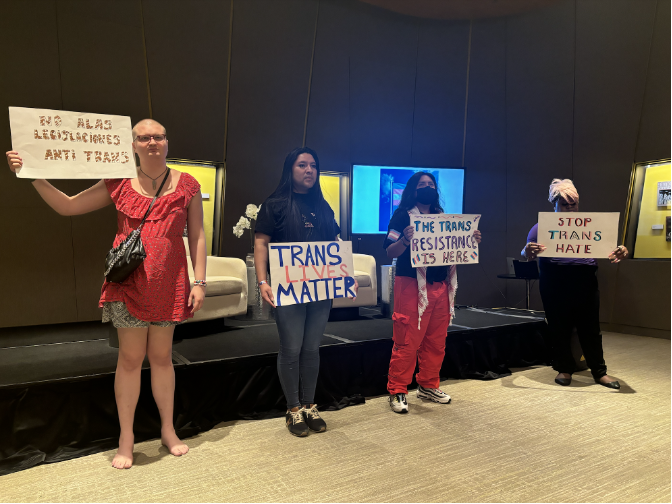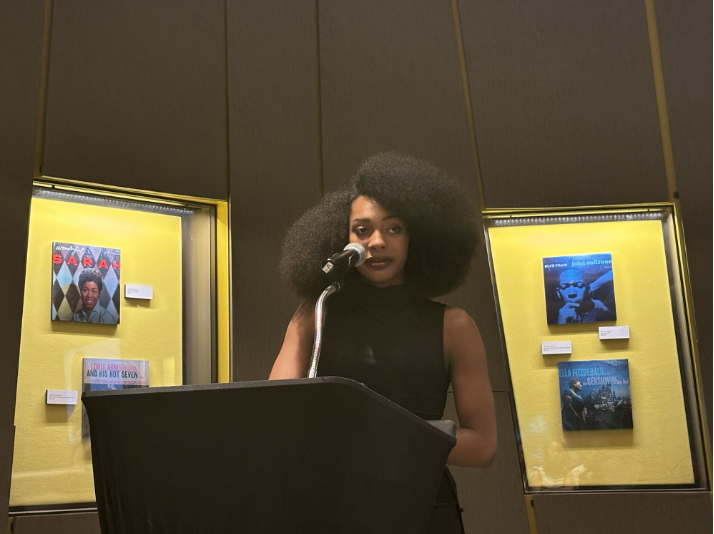Out trans advocate and first-year Harvard University student, Safara Malone is taking up space and pushing back against efforts to erase and diminish trans and gender non-conforming youth of color.
Malone, 19, an Austin, TX, native, Cooke Scholar, and Co-President of TransHarvard, delivered the keynote address during the 2024 LGBTQ Symposium on June 6 at The National Center for Civil and Human Rights (NCCHR) in downtown Atlanta. Aligned with the LGBTQ+ Institute’s “YOU(th) Belong Program” under the leadership of Executive Director Tim’m West, Malone’s invitation to address LGBTQ youth, allies, and community leaders over the three-day symposium reflects her dynamic advocacy and influence while embodying the Institute’s mission to support the next generation of leaders.
From the moment Malone stepped to the podium inside The Glenn Room at the NCCHR, she challenged the audience to expand.
“I invite you to open your imagination and dream of what society can be for the queer youth of now and the queer youth of tomorrow,” Malone said. “Ask yourself, what if?”
What if every young trans person had an opportunity to thrive without their identities being up for debate or their existence threatened by legislation? Malone tells GLAAD she is blessed to have supportive parents “who are ordinary Black people with extraordinary hearts,” and that her childhood home and her alma mater, Round Rock Early College High School, were safe places for her to come into the fullness of her trans identity.

In Texas, that is no easy feat, given that extremist lawmakers have successfully passed anti-trans legislation, such as TX HB1686, which effectively banned necessary medical health care for trans youth. Malone spoke out against the discriminatory bill at a state congressional hearing with the support of her mother after a 17-hour wait. Unsurprisingly, she points to the trusted bond developed with high school world geography teacher and sponsor of Round Rock Early College High’s Gender and Sexuality Alliance, Mr. Julian Jones, as a pivotal chapter in her journey.
“On the first day of class, we filled out a Google form with our name and our preferred name, what we wanted to be called privately with just him, and what we wanted to be called with the entire class,” Malone recalls. “He also had our pronouns, which was in 2019 during my freshman year of high school.”
President of her high school GSA, Malone tells GLAAD she felt incredibly safe with Jones from day one upon entering his classroom to find a rainbow flag and artwork painted by members of the GSA representing queer love. She also credits Jones with her acceptance into Harvard to pursue a bachelor’s in women, gender, and sexuality studies and government.

“The entirety of me getting into Harvard, my application, and a lot of the efforts I did that made me stand out in a large application pool was my trans advocacy, which began initially with me being the president of my school’s GSA,” she said.
Malone doesn’t want to imagine her high school experience where Jones doesn’t exist, and she’s acutely aware that for many queer and trans youth, especially in the South, GSA’s and LGBTQ-affirming teachers like Jones are not an option.
“That closeness is something that I think a lot of queer youth need in high school, especially in Texas, where there are going to be teachers and students and government [officials] who aren’t looking out for you,” she said.
Besides the support Malone received from Jones, she also benefits from the support of her ballroom family—The House of Lepore—and specifically from House mother, the legendary Natalie Sanders-Lepore.
“Ballroom gave me confidence, and it was through Natalie, my ballroom mother, that I found strength and pride in my identity as a black trans woman,” Malone said during her Symposium address. “Her unwavering support reminded me that love has no bounds. It was ballroom that gave me the personality I have today, and seeing strong-willed black trans women take up space helped me come out of my shell,” she added.

Authentic trans representation in media, precisely FX’s ballroom drama “POSE,” served as a possibility model for Malone of what could be.
“I really connected with Angel’s character on POSE,” she said. It made me feel at home within my trans identity and made me feel like I could be a beautiful woman, and I could accept myself, and that was really beautiful.”
In her role as Co-President of TransHarvard, Malone tells GLAAD she is intentional about creating dedicated community spaces for intersectional identities across the trans diaspora.
“I insisted that we take up space,” she said. “Through meetings with deans across the university and pushing the needle even in the most conservative spaces within the oldest institution in America. I am seeing firsthand the power of student voice within our institutions.”

As Malone continues to use her voice to advocate for trans equality and liberation, she is also mindful of creating a balance between advocacy, academics, and rest—she was days away from a trip to Hawaii after the LGBTQ+ Symposium. Like everything else in her life, she is intentional about centering Black trans joy amid sometimes traumatic experiences for the trans community.
“It [Black trans joy] looks like having fun, laughing, going to balls, voguing in the street, and just being unapologetically ourselves and not caring who is looking,” she said. “And being able to do that, especially in Harvard Yard and on the streets of Cambridge and showing up as my Black queer self in such an institution that historically would have never wanted someone like me to be there—it’s so liberating. That’s what Black trans joy looks like for me.”













